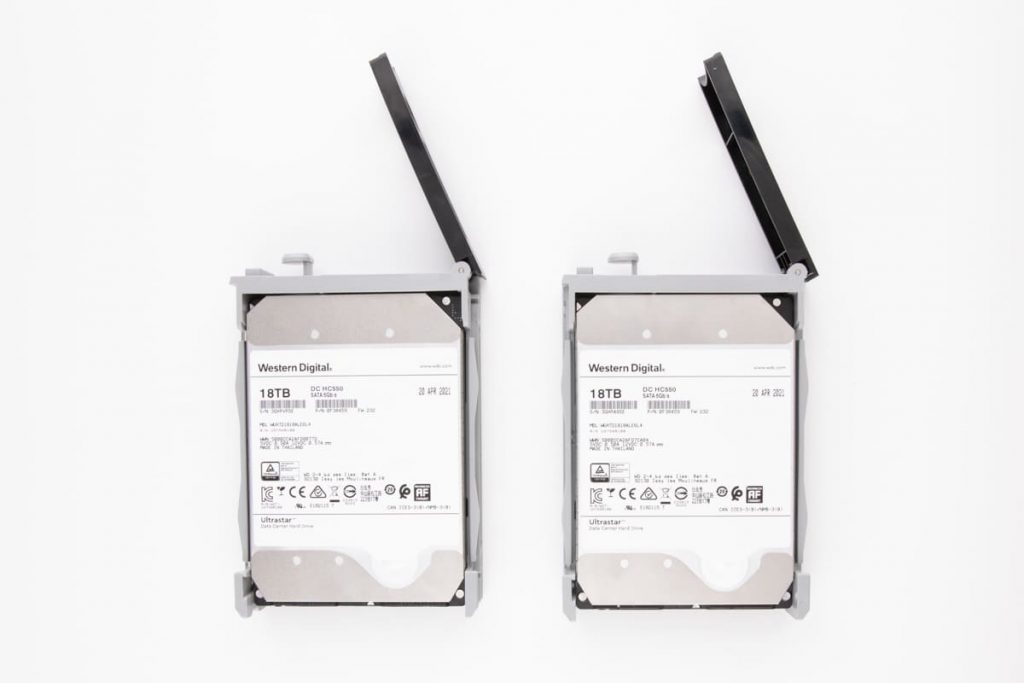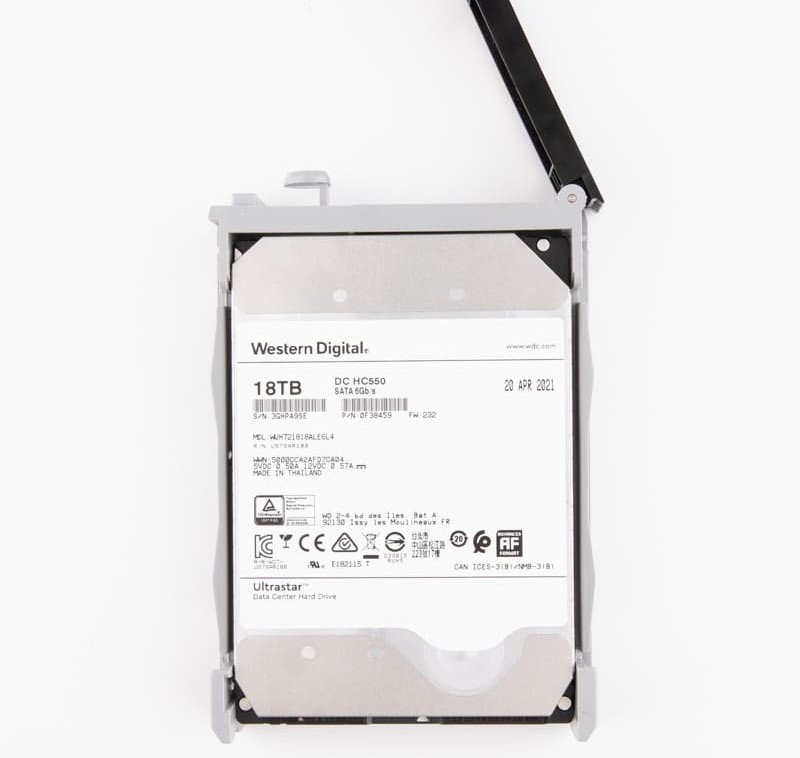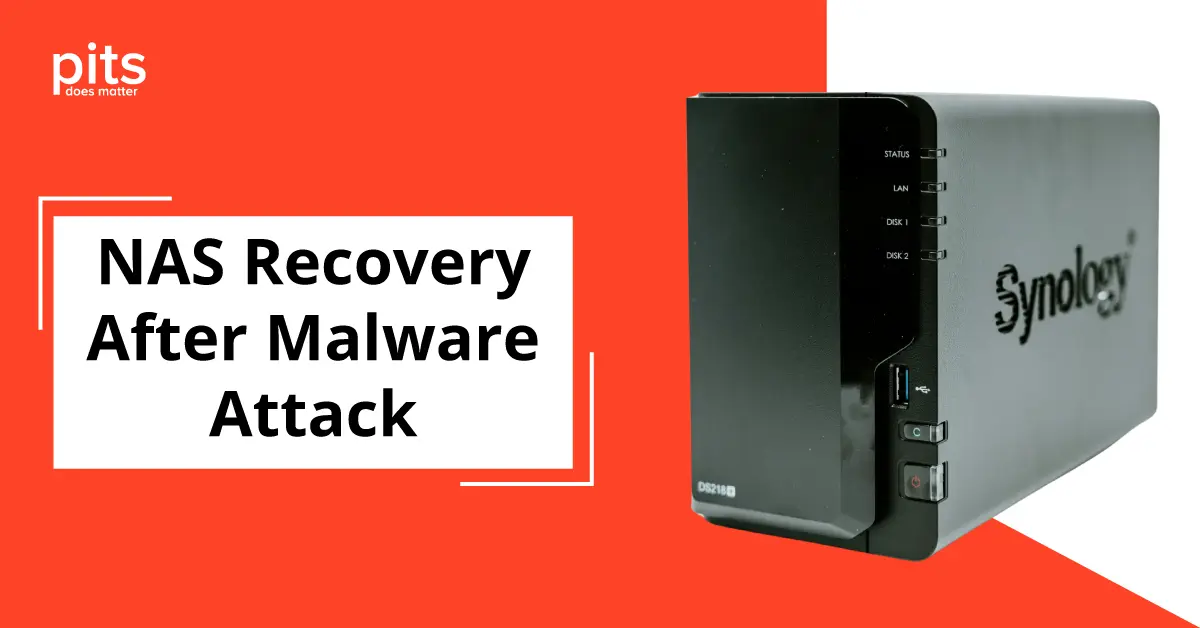Network-attached storage devices are becoming popular in homes and small businesses. Compared to regular PC servers, they are inexpensive, consume less electricity, and are easier to maintain, even for regular users.
NAS devices use RAIDs of various types for fault tolerance and data retention. Many manufacturers offer their users RAID management systems, which can combine different hard drives into complex RAID systems.
Such schemes allow home or SME users to use the extra disks efficiently, but they have one drawback: when it comes to data recovery, it is not very clear what to do with such systems.
NAS Encryption Virus Attack Recovery
Encryption viruses have been attacking various IT systems for years with the consequences of their underground work. Hiding behind a link in an email or JavaScript code on a website page, they are silently installed on work computers or servers and begin to encrypt all information quietly.
After the encryption ends, some delete the encryption key, and others demand a paying a ransom. However, not all users who pay the ransomware attacker get the encryption key.
Recently, our team received a data recovery request for NAS. The client had a small business running, and all his backups and customer lists were stored on the device. The network-attached storage had two Western Digital hard drives. He complained that the data stored on these drives had become inaccessible, and the operating system showed the files as encrypted. After consulting with our dedicated customer services, the client decided to proceed with our data recovery process.
Our skilled experts received the NAS device and started diagnostics. They found out that the hacker used the SQL injection method to access his database and view, modify, add, delete data, and write and download local files.
"*" indicates required fields
Network-Attached System Firewall Failure
In this case, our data recovery specialists restore the system’s initial state and eliminate the virus. The engineer deleted all the virus files using our self-designed decryption tools designed for such kinds of virus attacks.
Then, they restored the firewall of the network storage. The firewall started properly filtering data packets by headers and set a session-wide gateway between the packet’s recipient and sender.
In addition, the firewall rules can determine which software is trying to access the Internet and block its IP address.

Most modern firewalls are capable of operating in learning mode, allowing the user to set the network policy for all programs attempting to access the Internet. Most commercial NAS devices are different from conventional ones: very often, they use processors that are not compatible with Intel devices, they do not have video outputs, and it is impossible to connect a keyboard and mouse to them.
Therefore, running any data recovery program directly on them is impossible. So, disks will need to be removed from such devices and shipped to a data restoration company.
NFS Data Recovery
After the firewall was established, the next step was to decrypt files that the virus damaged. Our engineers analyzed the documents, and they could not find the encryption key as it was deleted.

A cryptographic key is a special set of data that is used to encrypt and decrypt information sent over a network. Crypto keys are used to determine authentication codes and verify electronic digital signatures.
Our engineers having years of experience in the industry, easily restored the key and decrypted all the files.
As the virus also damaged the file system, our data restoration technicians assembled the file catalogs and finalized the case. The Network File System provides storage for files on a network. NFS is a distributed file system.
It provides users with access to files located on remote computers and allows them to work with these files in the same way as with local ones.
Our engineers restored the file system and provided a remote file verification for the client. After he approved the results, we shipped his media storage back.
PITS Global Data Recovery Services offers highly secure and confidential data recovery solutions for network-attached storage devices.
Our highly skilled technicians can remove all viruses, including ransomware types. They safely decrypt all lost files and recover data from media storage. Contact PITS Global Data Recovery Services at (855).967.3984 or fill out the form to request professional data retrieval solutions. Our engineers will recover the files securely and successfully.
Frequently Asked Questions
How can I protect my NAS from future malware attacks?
Ensure your NAS is regularly updated with the latest security patches, use strong, unique passwords, enable network firewalls, and consider employing anti-malware software designed for NAS systems.
Should I try to remove the malware myself from the NAS?
Unless you have expertise in cybersecurity, attempting to remove the malware yourself can lead to data loss. It’s advisable to consult with a professional who specializes in malware removal.
How long does it take to recover data from a NAS damaged by malware?
Recovery time varies widely based on damage severity, NAS size, and recovery processes used. It can take anywhere from a few days to several weeks.
Can ransomware affect my NAS?
Ransomware, a type of malware, can encrypt NAS files, making them inaccessible without a ransom. Backing up data and enhancing security can deter ransomware attacks.
Will paying the ransom guarantee recovery of my encrypted files?
Paying the ransom does not guarantee the decryption of your files. It’s best to consult with a professional for guidance on how to handle a ransomware attack and recover your data.
